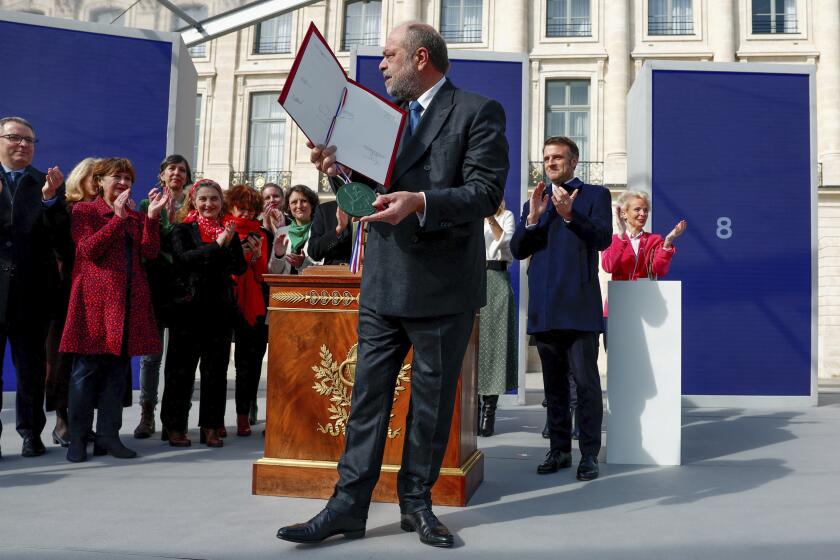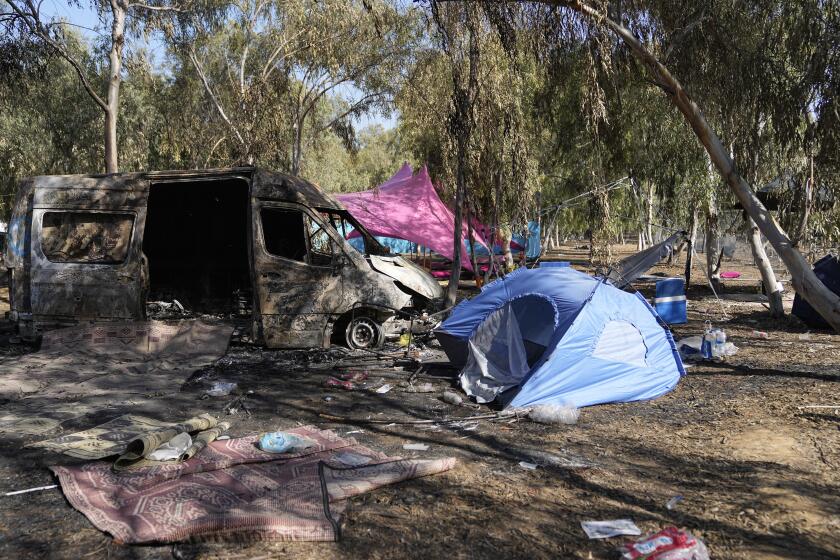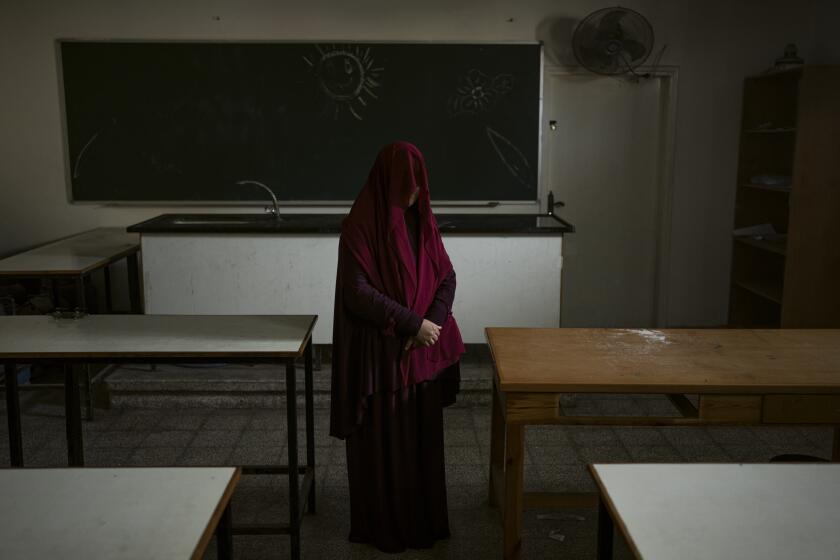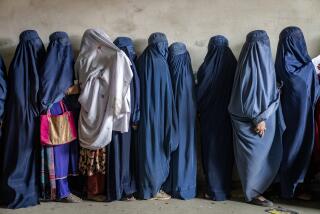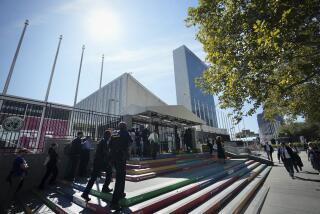Legal equality for women could take 300 years as backlash rises against women’s rights, U.N. chief says
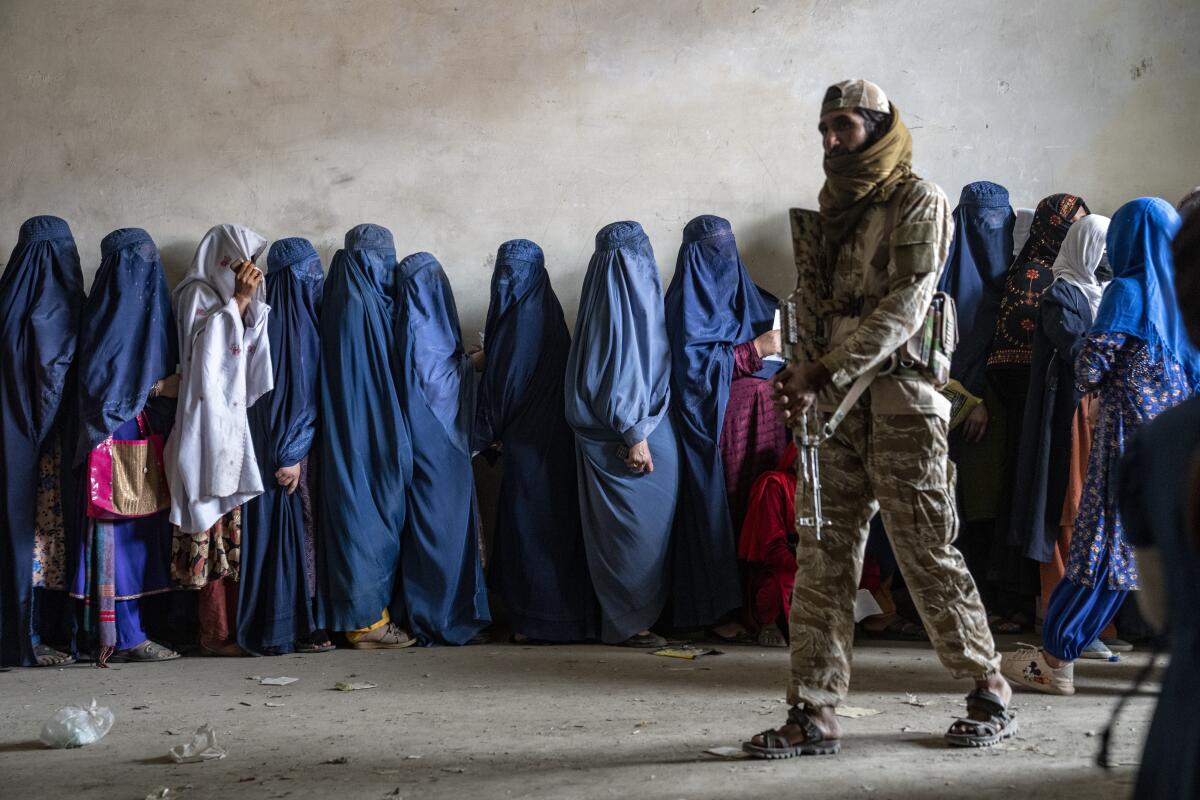
- Share via
UNITED NATIONS — Legal equality for women could take centuries as the fight for gender equality is becoming an uphill struggle against widespread discrimination and gross human human rights abuses, the United Nations chief said on International Women’s Day.
Secretary-General Antonio Guterres told a packed U.N. commemoration Friday that “a global backlash against women’s rights is threatening, and in some cases reversing, progress in developing and developed countries alike.”
The most egregious example is in Afghanistan, he said, where the ruling Taliban have barred girls from education beyond sixth grade, from employment outside the home, and from most public spaces, including parks and hair salons.
At the current rate of change, legal equality for women could take 300 years to achieve and so could ending child marriage, he said.
Guterres pointed to “a persistent epidemic of gender-based violence,” a gender pay gap of at least 20%, and the underrepresentation of women in politics. He cited September’s annual gathering of world leaders at the U.N. General Assembly, where just 12% of the speakers were women.
France enshrines the right to abortion in its constitution, a powerful message of support for women’s rights on International Women’s Day.
“And the global crises we face are hitting women and girls hardest — from poverty and hunger to climate disasters, war and terror,” the secretary-general said.
In the last year, Guterres said, there have been testimonies of rape and trafficking in Sudan, and in Gaza women women and children account for a majority of the more than 30,000 Palestinians reported killed in the Israeli-Hamas war, according to the Gaza Ministry of Health.
He cited a report this month by the U.N. envoy focusing on sexual violence in conflict that concluded there are “reasonable grounds” to believe Hamas committed rape, “sexualized torture” and other cruel and inhumane treatment of women during its surprise attack in southern Israel on Oct. 7. He also pointed to reports of sexual violence against Palestinians detained by Israel.
International Women’s Day grew out of labor movements in North America and across Europe at the turn of the 20th century and was officially recognized by the United Nations in 1977. This year’s theme was investing in women and girls to accelerate progress toward equality.
The U.N. envoy focusing on sexual violence in conflict says there are ‘reasonable grounds’ to believe Hamas committed sexual crimes in Oct. 7 attack.
Palestinian women in Gaza returning from wartime detention are reporting physical abuse and medical neglect inside Israel’s prisons.
Roza Otunbayeva, the head of the U.N. political mission in Afghanistan, told the Security Council on Wednesday that what is happening in that country “is precisely the opposite” of investing in women and girls.
There is “a deliberate disinvestment that is both harsh and unsustainable,” she said, saying the Taliban’s crackdown on women and girls has caused “immense harm to mental and physical health, and livelihoods.”
Recent detentions of women and girls for alleged violations of the Islamic dress code “were a further violation of human rights, and carry enormous stigma for women and girls,” she said. It has had “a chilling effect among the wider female population, many of whom are now afraid to move in public,” she said.
Otunbayeva again called on the Taliban to reverse the restrictions, warning that the longer they remain, “the more damage will be done.”
Sima Bahous, the head of U.N. Women, the agency promoting gender equality and women’s rights, told the commemoration that International Women’s Day “sees a world hobbled by confrontation, fragmentation, fear and most of all inequality.”
“Poverty has a female face,” she said. “One in every 10 women in the world lives in extreme poverty.”
Men not only dominate the halls of power but “own $105 trillion more wealth than women,” she said.
Bahous said well-resourced and powerful opponents of gender equality are pushing back against progress.
“We all feel this pushback acutely,” Bahous said. “Our values and principles have never been as challenged as they are today.”
Guterres urged nations to prioritize equality for women and girls. He announced that the U.N. is launching a “Gender Equality Acceleration Plan” to support governments in designing and implementing policies and spending that respond to the needs of women and girls.
Bahous drew strong applause when she called for a humanitarian cease-fire in Gaza, which Guterres has long sought as well.
She also urged funding for women and girls, stressing that when this happens economies grow, governments thrive and peace is achieved sooner.
“But in spite of these clear facts, we continue to stubbornly invest in weapons more than we invest in women and girls,” Bahous said.
Lederer writes for the Associated Press.
More to Read
Sign up for Essential California
The most important California stories and recommendations in your inbox every morning.
You may occasionally receive promotional content from the Los Angeles Times.
